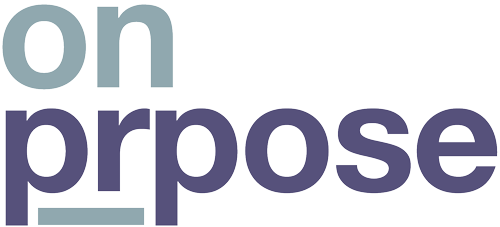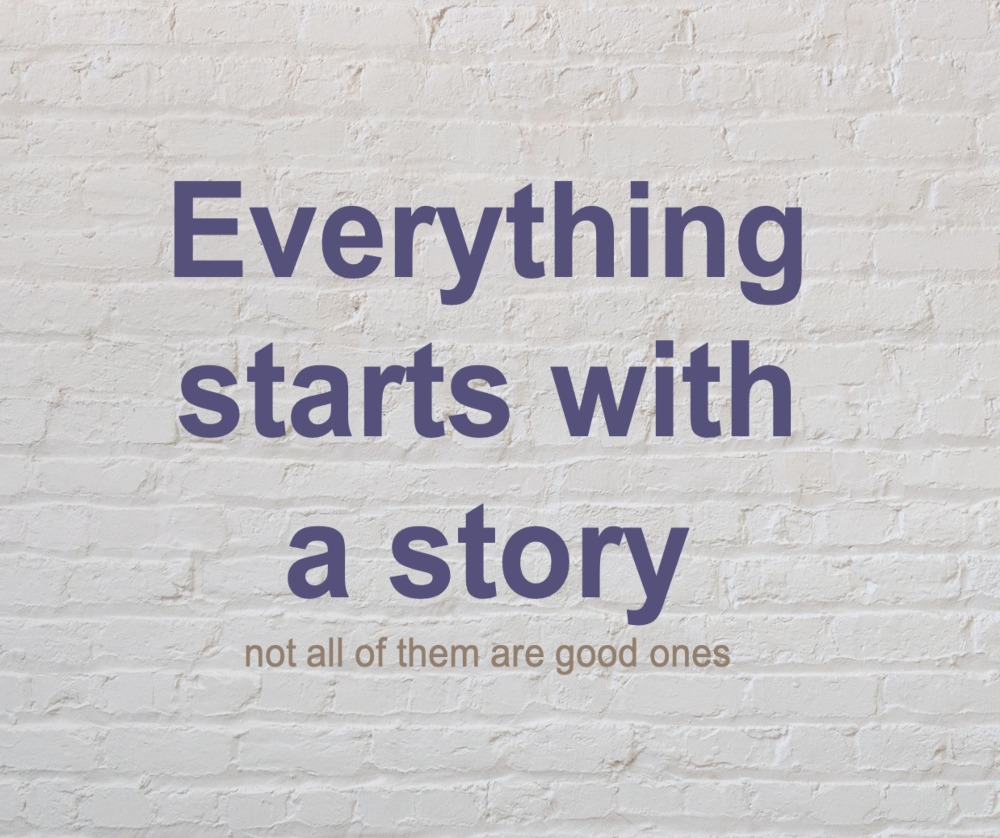Everything starts with a story. Disagree? If so, ask yourself what you’re thinking right now. Looking for exceptions to the rule? Absolutes, after all, are meant to be challenged. Never say never. Ironically, even this thought process is you, telling yourself a story. The voice in your head tells you stories all day long, like it or not.
We’re so wired for stories, in fact, we even make them up when we don’t have ready access to the context, meaning and events around things. Without the story, we’re not sure how we should think, feel and behave in relation to a thing. Without a story, we fill in the details based on our own experience and perspectives. It’s why the rumour mill is one of the most resilient aspects of culture. Look no further than Twitter for infinity examples.
Everything starts with a story. Not all of them are good ones.
Why does this matter?
Because whatever you hope to achieve starts with the story you tell yourself and others. Unfortunately, we get it wrong a lot of the time, particularly in our professional lives.
Just in case the voice in your head is saying this topic is just for the marketers in the room, think again. Everything starts with a story. Everything. The next conversation you have with a colleague. The kick off to the next big project. Your next customer conversation. Even the next time you talk yourself out of eating the box of cookies instead of just one. All of these moments start with a story and a goal requiring human beings to get on board. It goes something like this:
- Establish relevance – Why you? Why them?
- Get buy in – Why should anyone care?
- Motivate action – When people connect and care, they change. They act.
Tell a good story and you get all of those things. Tell a bad story, all kinds of things happen, just not likely what you wanted. What’s the worst thing that can happen? In the face of NOT good stories, people…
- Don’t notice
- Don’t care
- Don’t do anything
- Do OTHER things
The not good stories are worse than the flat-out bad ones. At least bad stories give us something to talk about. Think about the really annoying ad you can’t forget and can’t help but share. For me it’s Marineland here in southern Ontario. I hate it for all kinds of reasons. And now I only have myself to blame for the song in my head. You’re welcome.
Stories, not the good ones. Where do we go wrong? Let me count the ways. 7 of them.
1. We choose corporate speak over human speak “Your success is our business”
2. We adopt the personality of cardboard for fear of standing out too much. [insert 95% of corporate website copy here]
3. We share information, not stories. “With XYZ product or service, you can save .001% of some comparison you have no context to evaluate”
4. We wrongly assume it’s about us. We do amazing things. Our product is amazing. Our customers think we’re amazing. You should too. I’m sure you’ll figure out a way that our amazingness fits into your life or business. Good luck.
5. We create for our lawyers not our customers. “In some cases, not all the time, we outperform competitors but we’re uncomfortable saying by how much”.
I actually had to write something almost exactly like this once. I won’t name the brand because that’s not nice.
6. We edit by committee and it shows. The 27 sentence mission statement chock-full of words like: collaboration, teamwork, innovation, passion, results and so on, and so on and so on.
Go ahead, ask someone to recite it out loud without notice.
7. We think strategic priorities and generic value statements are all the storytelling we need.“We’re committed to serving our people, our customers and partners and the communities in which we operate bla, bla, bla…”
Pardon me, I just nodded off
Writing that list of 7 ways we go wrong was like communications therapy for me, not because I’ve perfectly avoided all of these pitfalls in the last 20 years, but because I’ve made all of these mistakes. It’s easy to do when the working world seems to be A-OK with a bunch of bland, personality-lacking, fence-sitting, corporate speak. It’s like we’ve lost our ability to judge them critically.
Let’s commit right now to never do it again. From now on, we won’t settle for anything less than good human stories by humans for humans.
- Let’s dare to stand out
- Show who we really are
- Put a stake in the ground
- Find the heroes, the struggle and the outcome
- And let the lawyers squirm (just a little, not a lot)
Everything starts with a story. Let your next one be a good one. It’s easier than you think. As humans, we naturally think in stories. Be yourself, share what you know, in your own words. And practice. That always helps.
And remember, the key to motivating any action is getting people to relate, buy in and take action. Today, I think I’ll try telling my teenage son a story about the cleanest bedroom in all the land. Wish me luck.

